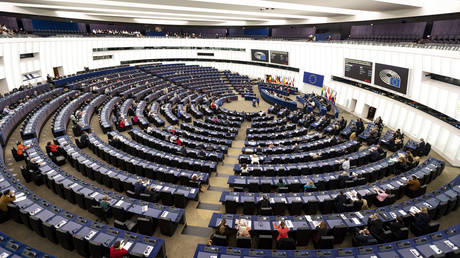
The new Audit Board will scrutinize the management of a €50 billion aid package allocated to Kiev
The European Commission has set up a special watchdog to prevent the possible embezzlement of billions of dollars allocated to Kiev as part of the EU’s flagship plan to finance Ukraine in its conflict with Russia.
On Monday, the EU officially announced the creation of a Brussels-based Audit Board with a mandate “to prevent fraud, corruption, conflicts of interest, and irregularities” in funding provided to Ukraine by the bloc. The body, which will be active until mid-2028, will provide regular reports to the EU Commission and communicate any concerns.
In February, EU members agreed to provide Kiev with up to €50 billion ($54 billion) in funding from 2024 to 2027 as part of the mechanism known as the Ukraine Facility. The money will help finance Ukraine’s modernization and reconstruction, as well as deliver uninterrupted public services to the population and implement numerous reforms required to join the EU.
Of this sum, €33 billion will be sourced by issuing bonds, while €17 billion could come in “non-repayable support” potentially generated by proceeds from Russian assets frozen by the EU after the start of the conflict. Moscow has repeatedly denounced the asset freeze as “theft.”
The program also comes with some strings attached, requiring Kiev to significantly strengthen the rule of law and its democratic institutions.
Corruption has for years been considered one of the key problems plaguing Ukraine, and the country has been rocked by several high-profile military procurement scandals in recent months.
These concerns were echoed in a report released by the Pentagon Inspector General last month, which called corruption in Ukraine “endemic” and its government “one of the least accountable” in Europe.
Meanwhile, a report released by the European External Action Service on Ukraine in 2023 said that while the country had made some progress in boosting anti-corruption efforts, it “should continue building a credible track record of investigations, prosecutions, and final court decisions in high-level corruption cases.”




